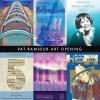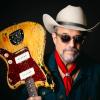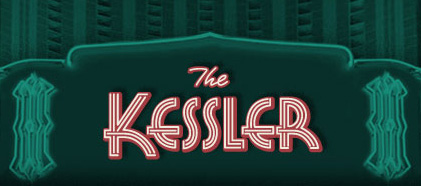Upcoming Events
|
Sat
30
AUG
|
6:00pm
|
 |
The Kessler
-
Dallas
TX
Pat Ramseur Poster Art Opening
|
|
Fri
5
SEP
|
7:00pm
|
 |
The Kessler
-
Dallas
TX
Blessing Offor with special guest Brandin Reed
Blessing Offor
|
|
Sat
6
SEP
|
7:00pm
|
 |
The Kessler
-
Dallas
TX
Louder Than Stigma Fest ft. Cure for Paranoia & more
Cure For Paranoia, Sam Cormier, Gracen Wynn, Remy Riley
|
|
Sun
7
SEP
|
7:00pm
|
 |
The Kessler
-
Dallas
TX
The Speaker Wars featuring Stan Lynch with special guest The Andy Timmons Band
The Speaker Wars, Stan Lynch, The Andy Timmons Band
|
|
Fri
12
SEP
|
7:00pm
|
 |
The Kessler
-
Dallas
TX
Junior Brown with special guest Justin Pickard
Junior Brown
|
|
Thu
18
SEP
|
7:00pm
|
 |
The Kessler
-
Dallas
TX
KXT 91.7 presents S.G. Goodman with special guest John Calvin Abney
S.G. Goodman, John Calvin Abney
|
|
Fri
19
SEP
|
6:30pm
|
 |
The Kessler
-
Dallas
TX
Bob Schneider - Early Show
Bob Schneider
|
|
Fri
19
SEP
|
9:15pm
|
 |
The Kessler
-
Dallas
TX
Bob Schneider - Late Show
Bob Schneider
|
|
Sat
20
SEP
|
7:00pm
|
 |
The Kessler
-
Dallas
TX
Mon RovÎa with special guest Khatumu
Mon Rovîa, Khatumu
|
|
Fri
26
SEP
|
7:00pm
|
 |
The Kessler
-
Dallas
TX
Neal Francis with special guest Miles Miller
Neal Francis, Miles Miller
|
|
Fri
26
SEP
|
7:00pm
|
 |
Majestic Theatre
-
Dallas
TX
I'm With Her with special guest Jon Muq
I'm With Her, Jon Muq
|
|
Sat
27
SEP
|
7:00pm
|
 |
The Kessler
-
Dallas
TX
Ally Venable and Walter Trout
Ally Venable, Walter Trout
|
|
Wed
1
OCT
|
6:30pm
|
 |
The Kessler
-
Dallas
TX
Hollow Coves with special guest Shallow Alcove
Hollow Coves, Shallow Alcove
|
|
Fri
3
OCT
|
7:00pm
|
 |
The Kessler
-
Dallas
TX
Cory Morrow - Album Release Show
Cory Morrow
|
|
Sun
5
OCT
|
7:00pm
|
 |
The Kessler
-
Dallas
TX
Tab Benoit
|
|
Fri
10
OCT
|
7:00pm
|
 |
The Kessler
-
Dallas
TX
CANCELLED - Maddie Zahm
Maddie Zahm
|
|
Sat
11
OCT
|
7:00pm
|
 |
The Kessler
-
Dallas
TX
Bleu Edmondson with special guest New Ellum
Bleu Edmondson, New Ellum
|
|
Thu
16
OCT
|
7:00pm
|
 |
The Kessler
-
Dallas
TX
Sandra McCracken with special guest Jon Guerra
Sandra Mccracken, Jon Guerra
|
|
Fri
17
OCT
|
7:00pm
|
 |
The Kessler
-
Dallas
TX
Atlas Genius
|
|
Sat
18
OCT
|
7:00pm
|
 |
The Kessler
-
Dallas
TX
Raul Malo with special guest Max Gomez
Raul Malo
|
|
Sun
19
OCT
|
7:00pm
|
 |
The Kessler
-
Dallas
TX
Texas Headhunters feat. Ian Moore, Jesse Dayton, & Johnny Moeller
Texas Headhunters, Ian Moore, Jesse Dayton, Johnny Moeller
|
|
Fri
24
OCT
|
7:00pm
|
 |
The Kessler
-
Dallas
TX
Jack Blocker
|
|
Sat
25
OCT
|
7:00pm
|
 |
The Kessler
-
Dallas
TX
The Last Revel and Oliver Hazard
The Last Revel, Oliver Hazard
|
|
Wed
29
OCT
|
7:00pm
|
 |
The Kessler
-
Dallas
TX
Juan Fernando Velasco: Julio Eterno
Juan Fernando Velasco
|
|
Thu
30
OCT
|
7:00pm
|
 |
The Kessler
-
Dallas
TX
Hazlett with special guest Cece Coakley
Hazlett, Cece Coakley
|
|
Sat
1
NOV
|
7:00pm
|
 |
The Kessler
-
Dallas
TX
Pony Bradshaw
|
|
Wed
5
NOV
|
6:00pm
|
 |
The Kessler
-
Dallas
TX
Murder By Death with special guest AJJ
Murder By Death, AJJ
|
|
Fri
7
NOV
|
7:00pm
|
 |
The Kessler
-
Dallas
TX
Ruthie Foster
|
|
Sat
8
NOV
|
7:00pm
|
 |
The Kessler
-
Dallas
TX
Vincent Neil Emerson
|
|
Sun
9
NOV
|
7:00pm
|
 |
The Kessler
-
Dallas
TX
Rodney Crowell: Airline Highway Tour with special guest Thomas Csorba
Rodney Crowell, Thomas Csorba
|
|
Sat
15
NOV
|
7:00pm
|
 |
The Kessler
-
Dallas
TX
Storytellers at The Kessler: Cottonmouth, Texas hosted by Robert Wilonsky
Jeff Liles
|
|
Fri
21
NOV
|
7:00pm
|
 |
The Kessler
-
Dallas
TX
Patterson Hood and Craig Finn
Patterson Hood, Craig Finn, Ben Hackett
|
|
Sat
22
NOV
|
7:00pm
|
 |
The Kessler
-
Dallas
TX
Leif Vollebekk - Revelation Tour
Leif Vollebekk
|
|
Sun
23
NOV
|
6:00pm
|
 |
The Kessler
-
Dallas
TX
Red River Songwriters: Walt Wilkins, Kelley Mickwee, Susan Gibson, Drew Kennedy, & Josh Grider
Drew Kennedy, Walt Wilkins, Susan Gibson, Josh Grider, Kelley Mickwee
|
|
Tue
2
DEC
|
7:00pm
|
 |
The Kessler
-
Dallas
TX
The Aces – Gold Star Baby Tour
The Aces, Lydia Night
|
|
Sat
6
DEC
|
7:00pm
|
 |
The Kessler
-
Dallas
TX
Dean Johnson and Esther Rose
Dean Johnson, Esther Rose
|
|
Fri
27
FEB
|
7:00pm
|
 |
The Kessler
-
Dallas
TX
The Strumbellas: Into Dust Tour
The Strumbellas
|
|
Wed
13
MAY
|
6:30pm
|
 |
Winspear Opera House
-
Dallas
TX
Drew & Ellie Holcomb
|







